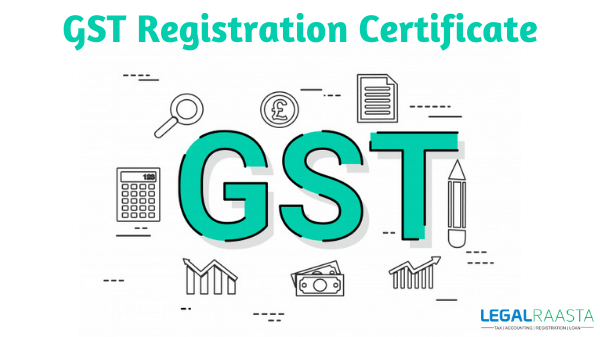Maximizing Your Company Prospective With Proper GST Enrollment: Trick Methods and Finest Practices
In the world of company procedures, the relevance of appropriate GST registration can not be overemphasized. By browsing the detailed landscape of Product and Provider Tax obligation with adept approaches and adherence to finest practices, organizations can unlock a world of opportunities to expand and prosper. The key to genuinely making the most of the possible lies in the critical use of GST mechanisms such as input tax credit history.
Recognizing GST Fundamentals
Discovering the essential principles of Goods and Provider Tax Obligation (GST) is vital for organizations intending to navigate the complicated landscape of modern-day tax systems. GST is a consumption-based tax that is levied on the supply of solutions and goods. It has changed a variety of indirect taxes, streamlining the taxation framework and fostering a unified market across India. Under GST, businesses require to recognize the principle of input tax credit, which permits them to claim credit scores for tax obligations paid on their inputs. This mechanism helps avoid cascading impacts and promotes performance in the tax obligation system.
Moreover, services must understand the distinction in between CGST (Main Product and Provider Tax) and SGST (State Item and Solutions Tax) Furthermore, IGST (Integrated Item and Provider Tax obligation) applies to inter-state deals, guaranteeing seamless tax obligation debt throughout the supply chain.
Picking the Right Registration Type
Optimizing Organization Conformity via Strategic GST Enrollment Choice is important for businesses wanting to run efficiently within the GST structure (Get your GST registration done today in Singapore). Selecting the ideal enrollment type is an essential choice that can impact various facets of a business, including compliance requirements, tax obligation responsibility, and functional flexibility
When picking a GST enrollment type, services need to consider aspects such as annual turn over, interstate deals, and service framework. Both primary enrollment types under GST are Normal and Structure schemes. Normal enrollment appropriates for businesses with a yearly turnover going beyond the threshold limitation, enabling them to collect tax obligations from clients and claim input tax obligation credit scores. On the other hand, the Composition plan is created for little businesses with a turn over listed below the specified restriction, supplying lower tax obligation rates but with constraints on input tax credit claims.
Maintaining Accurate Records
Establishing thorough record-keeping methods is necessary for services to make sure compliance with GST laws and track monetary deals properly. Maintaining precise records not only facilitates seamless GST declaring but additionally helps in keeping track of money circulation, analyzing organization efficiency, and preparing for audits.
Normal reconciliation of financial records with financial institution statements and GST returns is crucial to identify any type of errors or disparities quickly. Organizations need to additionally maintain all appropriate papers, such as invoices, agreements, and receipts, my company to substantiate their taped purchases. By preserving a well-organized record-keeping system, organizations can not just adhere to GST regulations however additionally acquire valuable understandings into their monetary health and wellness and make notified decisions to drive growth and earnings.
Leveraging Input Tax Credit Score
Using input tax credit rating efficiently can significantly benefit organizations by reducing their tax liability and improving cash money flow administration. Input tax credit report enables services to counter the tax they have paid on inputs against the tax obligation on results. By leveraging input tax obligation credit navigate to this site report, organizations can effectively decrease the general tax obligation concern on their products or services, thereby enhancing their competitiveness in the marketplace.
One secret strategy to maximize input tax obligation credit history is to make certain precise paperwork and compliance with GST laws. Maintaining exact records of all input taxes paid is critical for claiming the credit score promptly and properly - Get your GST registration done today in Singapore. Services should consistently reconcile their input tax obligation credit scores claims with the purchases made to recognize any kind of inconsistencies and fix them immediately
One more finest practice is to keep track of adjustments in GST regulations and guidelines to remain notified concerning eligible input tax credit categories and rates. Engaging with tax obligation specialists or attending regular training sessions can assist companies stay upgraded on the most up to date growths and optimize their input tax obligation credit history claims. Ultimately, by efficiently leveraging input tax obligation credit score, companies can enhance their economic effectiveness and competition in the industry.

Abiding By Declaring Due Dates
Adherence to filing due dates is an essential facet of preserving compliance with GST regulations for organizations. Timely submission of GST returns makes certain that companies meet their tax obligations and prevent charges or penalties for late declaring - Get your GST registration done today in Singapore. It is essential for companies to track the numerous GST filing deadlines based on their registration kind, whether month-to-month, quarterly, or yearly, to protect against any gaps in compliance
To abide by filing deadlines successfully, businesses must develop robust internal processes for record-keeping and settlement of financial data. Using bookkeeping software application or engaging expert accounting professionals can streamline the process and aid ensure timely and precise submissions. In addition, setting up suggestions or notifies for upcoming filing due dates can help organizations remain organized and avoid final rushes that might result in mistakes.
Failure to meet GST filing due dates can cause effects such as rate of interest fees on impressive tax obligation quantities or even lawful action in severe instances. By prioritizing conformity sites with declaring deadlines, companies can demonstrate excellent governance methods and preserve a favorable relationship with tax authorities, cultivating count on and reliability within business community.

Final Thought
To conclude, optimizing company possibility through correct GST registration includes recognizing the essentials of GST, choosing the appropriate enrollment type, preserving specific records, leveraging input tax credit score, and conference declaring deadlines. By following these essential methods and ideal practices, businesses can make certain compliance with GST guidelines and optimize their economic efficiency.
Under GST, organizations require to understand the principle of input tax obligation credit, which permits them to assert credit scores for tax obligations paid on their inputs. Regular enrollment is ideal for services with an annual turn over exceeding the threshold restriction, allowing them to accumulate taxes from consumers and insurance claim input tax obligation credit histories. Input tax obligation credit history allows organizations to offset the tax they have actually paid on inputs against the tax obligation obligation on outputs. By leveraging input tax debt, companies can properly decrease the total tax concern on their services or goods, consequently boosting their competitiveness in the market.
Engaging with tax experts or attending regular training sessions can help organizations remain upgraded on the most recent advancements and optimize their input tax credit rating cases.